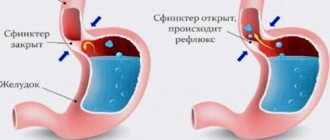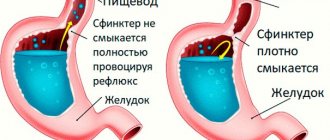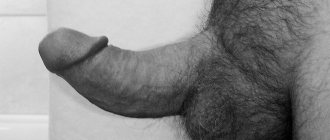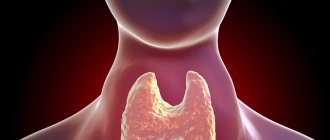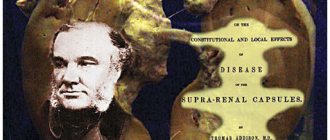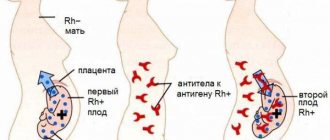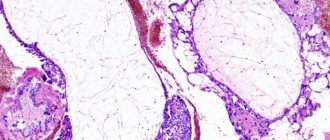Gastroesophageal reflux disease (GERD)
is a disease caused by repeated spontaneous reflux of stomach contents (and in some cases, duodenum) into the esophagus.
Our body is designed in such a way that movement must occur in only one direction: food from the esophagus must enter the stomach.
Reflux disease
The reverse movement is prevented by a ring of muscle, the lower esophageal sphincter, which provides a barrier that prevents stomach contents from naturally flowing into the esophagus. The digestive process begins in the stomach. Gastric juice secreted to digest food contains aggressive hydrochloric acid. Once in the esophagus, where it is not intended to be located, the acid causes irritation of the mucous membrane, manifested as a burning sensation along the esophagus, which we call heartburn. Heartburn can occur even in a healthy person, but if reflux occurs quite often, irritation of the esophageal mucosa can cause inflammation.
Thus, isolated cases of heartburn are not a disease, but if irritation of the esophageal mucosa occurs often enough, GERD is diagnosed. In this case, endoscopic examination may not reveal mucosal erosion. This form of the disease is called endoscopically negative reflux disease.
.
It accounts for approximately 70% of cases. In 30% of cases, endoscopy reveals mucosal lesions. This form of the disease is called reflux esophagitis
.
Causes of GERD
Reflux (reflux of stomach contents into the esophagus) can occur for the following reasons:
Weakness of the sphincter can be a consequence of: smoking, consumption of caffeinated drinks, chocolate, alcohol abuse, etc.decreased tone of the lower esophageal sphincter.
Sphincter weakness may result from:
- consumption of caffeinated drinks, chocolate;
- smoking;
- alcohol abuse;
- hormonal changes during pregnancy;
taking certain medications;
- flatulence (which, in turn, can be a consequence of poor nutrition, gastrointestinal diseases, digestive disorders - dyspepsia);
pregnancy;
- hiatal hernia.
For the development of gastroesophageal reflux disease, not only the reflux itself is important, but also some other factors that contribute to the aggravation of the situation, for example:
- depressed state of the esophageal mucosa, in which it is unable to resist damage;
- impaired ability of the esophagus to cleanse itself. Normally, the esophagus should quickly be cleared of the stomach contents that have entered it - due to gravity and peristalsis, and the acidity of the environment should be eliminated by sodium bicarbonate, which is part of the saliva.
Factors that provoke reflux are:
- stress;
- eating too much food (overeating);
- eating foods that cause increased gas formation and other digestive disorders;
- physical activity after meals.
Ways to combat unpleasant odor
It is not always possible to independently guess that your breath smells bad. A person does not perceive an unpleasant aroma, so he can judge its appearance by indirect signs. If you have any suspicions, you can use the edge of a spoon to collect plaque from your tongue and smell it. The condition of the saliva is judged by licking the wrist and waiting for it to dry.
You can get rid of an unpleasant odor using traditional methods. At home, a decoction of dill is used to rinse the mouth. At home you can prepare an infusion of medicinal herbs with anti-inflammatory and antibacterial effects:
- chamomile;
- Oak bark;
- sage;
- mint;
- calendula;
- St. John's wort.
At home, a decoction is prepared from a mixture of several herbs to increase effectiveness. The infusion must be highly concentrated to suppress the growth of bacteria and cleanse the oral cavity.
If halitosis is associated with eating foul-smelling ingredients, parsley or celery root will help get rid of it. They block foul odors, and chewing the fibrous structure cleanses the teeth. Observance of a drinking regime relieves halitosis. Clean water cleanses the oral cavity and keeps saliva in a liquid state.
The reason why these methods do not help are pathologies of digestion and metabolism. You can get rid of them at home only under the guidance of a doctor.
Symptoms of GERD
Stomach acid can enter the respiratory tract
Acid from the stomach can enter the respiratory tract (this usually happens when lying down) and cause a sore throat, hoarseness, dry mouth, and cough. GERD can stimulate the development of bronchial asthma, chronic obstructive bronchitis, and aspiration pneumonia.
The constant presence of acidic contents in the esophagus leads to scarring of the mucous membrane of the lower part of the esophagus, as a result of which the lumen of the esophagus narrows (this complication of GERD is called peptic stricture of the esophagus). In this case, pain when swallowing and dysphagia (difficulty swallowing) may occur.
But first of all, GERD is characterized by symptoms that usually appear an hour and a half after eating. This:
Heartburn
Heartburn is the main symptom of GERD. The presence of heartburn that regularly occurs after eating is the basis for diagnosing the disease.
More about the symptom
Belching
With GERD, belching after eating is typical.
More about the symptom
Sour or bitter taste in the mouth
A sour taste in the mouth means that acid from the stomach has traveled up the esophagus and irritated the taste buds. The taste in the mouth may be bitter if bile enters the esophagus, which normally should not rise above the duodenum.
Chest pain
A burning sensation may be felt behind the sternum (along the esophagus). Often the complaint is formulated as chest pain, so it is important to make sure that the pain is caused by irritation of the esophageal mucosa, and not by heart problems. In the case of GERD, the pain is usually associated with food intake, begins in the epigastric region and only then rises higher. Pain can radiate to the neck, shoulders, interscapular area, and lower jaw.
Symptoms
Let us consider in more detail the characteristics of the symptom of the disorder depending on the cause that provoked it. A sweet and sour taste in the mouth appears after consuming large amounts of sugar, lactose-containing foods and coffee. Other causes of the symptom include:
- sudden cessation of smoking;
- liver pathologies;
- dental diseases (caries, periodontitis, gingivitis);
- poisoning by toxic substances at work;
- uncontrolled use of certain types of drugs;
- diabetes.
A bitter-sour taste in the mouth is most often associated with dietary errors. It can also appear due to bad habits such as smoking or drinking alcohol.
List of other factors causing discomfort:
- taking antibiotics, allergy medications, NSAIDs, medications for seizures;
- problematic outflow of bile from the body;
- gallbladder diseases;
- liver dysfunction;
- duodenal ulcer;
- gastritis;
- initial stages of diabetes;
- hormonal imbalance (during pregnancy, puberty or menopause);
- chronic anemia.
When taking medications, acid in the mouth will not appear immediately. This requires a long course of drug treatment.
A sour-salty taste occurs with the development of sialodenitis. The problem is associated with inflammation of the salivary glands. It develops independently or as a complication of a prolonged runny nose and other otolaryngological pathologies.
Other causes of symptoms include:
- abuse of carbonated drinks or coffee;
- dehydration of the body;
- uncontrolled consumption of alcoholic beverages;
- damage to the sinuses;
- poor nutrition.
GERD Treatment Methods
Treatment of GERD is carried out by a gastroenterologist. Treatment is aimed at relieving inflammation of the esophageal mucosa, reducing the frequency of reflux of stomach contents into the esophagus, reducing the damaging properties of refluxate (the substance that enters the esophagus from the stomach), and increasing the protective properties of the esophageal mucosa.
Of great importance is:
Drug treatment
Treatment with medications is prescribed by a doctor and must take into account the individual characteristics of the patient.
Lifestyle change
Normalization of lifestyle is of great importance. It is necessary to quit smoking, limit, or better yet eliminate, alcohol consumption. You should not eat fatty, spicy, sour foods, as well as coffee, tea, chocolate, legumes, cabbage, peas, and brown bread. It is better to take food more often (4-6 times a day), but in small portions. You should not eat before bed (the last meal should be 2-2.5 hours before bedtime). You should sleep with your upper body elevated to reduce the likelihood of reflux during sleep.
Make an appointment Do not self-medicate. Contact our specialists who will correctly diagnose and prescribe treatment.
Diagnostics
If you constantly feel acid in your mouth, you should consult a doctor. He will conduct a visual examination of the oral cavity and, if necessary, refer the patient to doctors of other profiles: a gastroenterologist or otolaryngologist, a dentist. It all depends on the severity of the symptom and the detected pathologies.
To identify the cause of the disorder, the patient will have to undergo a number of laboratory tests at the clinic:
- blood for general and biochemical analysis;
- swab from the mouth and front wall of the throat;
- a sample of gastric juice (if gastrointestinal diseases are suspected);
- urine.
In the picture you can see what it is - an endoscopic examination
Laboratory tests are supported by the results of instrumental examinations: ultrasound of the digestive system (liver, pancreas, spleen, intestines) and endoscopy of the mucous membranes of the stomach. If necessary, the patient will be sent for an MRI of the abdominal cavity to rule out oncology.
Metal structures in the mouth
After installing braces and crowns, dentists warn patients about the possible appearance of a metallic taste - this is a normal phenomenon that should subside within a week after the procedure. If this period has passed, and discomfort still makes itself felt, the reasons may be as follows:
- allergy to metal. It is very rare, but taking an allergy test will not be superfluous. If the suspicion is confirmed, the only solution will be a complete replacement of all installed structures;
- galvanism (interaction between metals), which occurs in the case of installation of orthopedic structures made of different materials that interact with each other. If all the crowns and posts are made of the same material and the amalgam fillings are replaced, the problem will disappear.
If you have metal dentures or implants, an iron taste may become noticeable after consuming acidic foods and drinks. Accordingly, the presence of piercings on the tongue or lips can also cause a similar effect.
How to improve your oral health
Good hygiene helps get rid of bad breath. If the cause is dense tartar, you need to visit the dentist and remove it mechanically. The toothbrush is powerless in this case.
Any dental defects must be treated. Carious cavities are cleaned and filled, and rotting tooth roots are removed. If necessary, prostheses are installed.
To get rid of the smell, you need to change your toothbrush and choose the right toothpaste. The brush should have medium hardness in order to clean the teeth well and not injure the gums. For better oral hygiene, you can buy a special tongue brush. Toothpaste is chosen based on gum sensitivity and related problems. The dentist will help you choose the product.
To thoroughly clean the spaces between teeth, it is not recommended to use wooden toothpicks. A special thread or brush will do the job better. Some threads contain mint fibers that add a pleasant aroma to your breath. And silver ions will stop the proliferation of pathogenic bacteria.
Teeth should be brushed morning and evening. Before going to bed, after hygiene procedures, you do not need to eat. Leftover food at night will become a breeding ground for the proliferation of microorganisms that damage tooth enamel.
Metallic taste in the mouth of people of different sexes
A number of reasons that cause the sensation of metal are divided by gender.
For men who work in mining or in industries that use heavy metals, an iron taste may appear during each shift and disappear after the end of the shift. Long-term wearing of massive metal objects (bracelets, watches) also leads to a similar result, since during prolonged contact with the skin the concentration of ions entering the blood through the pores becomes too high.
Women may experience a metallic taste due to:
- pregnancy. Many expectant mothers note that a metallic taste periodically appears during pregnancy. Why does this happen? Firstly, the matter may be a lack of microelements and vitamins, and secondly, changes in hormonal levels and malfunctions in the functioning of receptors that recognize taste can be to blame;
- the use of weight loss drugs and various biological additives, which often leads to poisoning due to incorrect dosages and the desire to quickly get the most pronounced result possible;
- insufficient amount of fluid consumed (women resort to this remedy to lose weight and get rid of swelling). A metallic taste is one of the signs of dehydration.
It is best to start combating this not very pleasant feeling by visiting a doctor who will prescribe the necessary tests and examinations. Otherwise, you can look for reasons on your own and continue to experience discomfort regularly for a very long time.

